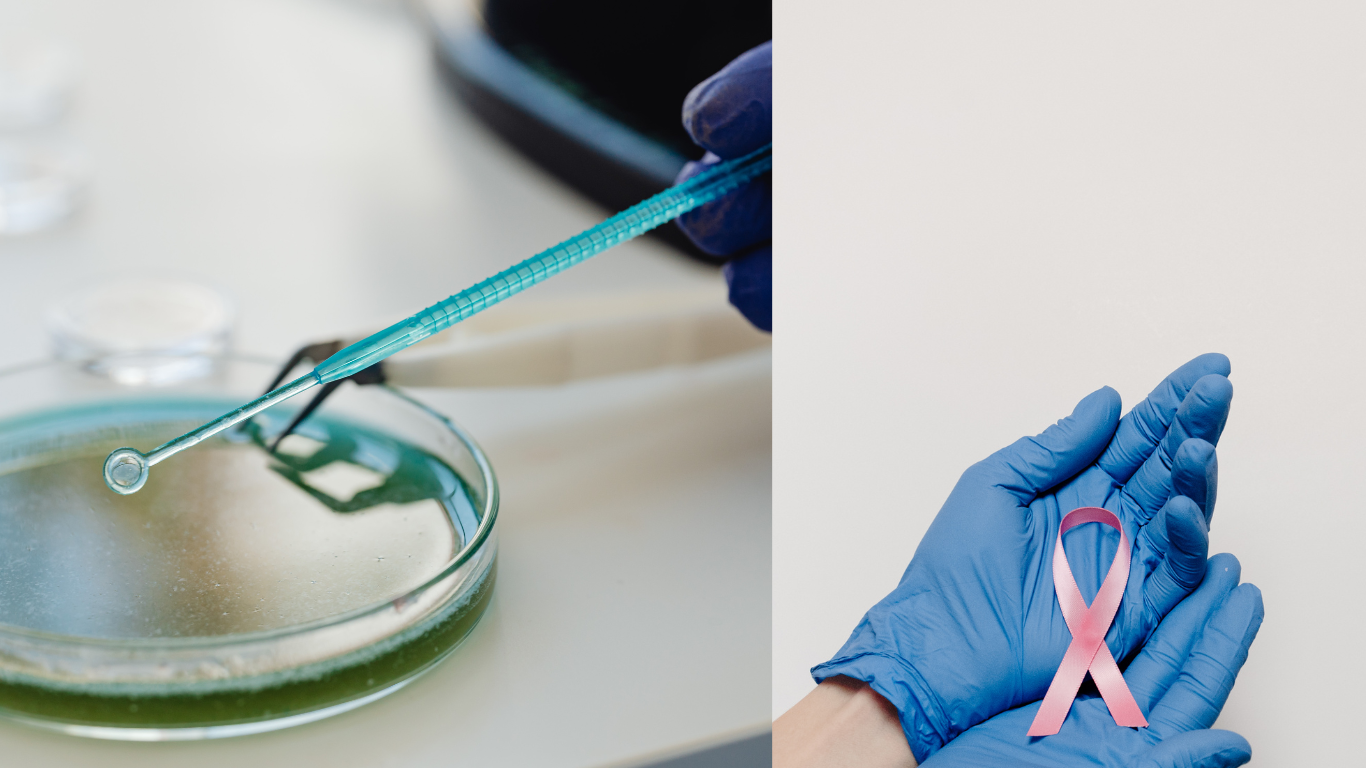Introduction
Dr. Kamal Ranadive stands as a towering figure in the world of cancer research, her work spanning over several decades and making significant strides in understanding the relationship between cancer and viruses. Her contributions extend beyond the laboratory; she was a mentor, an educator, and a passionate advocate for women in science. This article delves into her life, her groundbreaking research, and the legacy she left behind, highlighting her role in shaping modern cancer research and inspiring future generations of scientists.
Early Life and Education
Dr. Kamal Ranadive was born on November 8, 1917, in Pune, Maharashtra, India. Her childhood was marked by a strong emphasis on education, influenced by her father, a biologist himself, who fostered a love for science in Kamal from a young age. She pursued her undergraduate studies in Botany and Zoology, showing a keen interest in the biological sciences. Her academic prowess led her to the Agriculture College at Pune, where she completed her Master’s degree.
Her academic journey continued at the University of Bombay, where she earned her Doctorate in Cytology under the guidance of Dr. V.R. Khanolkar, a prominent figure in cancer research. It was here that she began to delve deeply into the world of cellular biology and cancer, setting the stage for her future groundbreaking work.
Career Beginnings
Dr. Ranadive’s professional career began at the Indian Cancer Research Centre (ICRC) in Mumbai, where she initially worked as a research scientist. Her early work focused on the development of tissue culture techniques, which would later become a cornerstone of her cancer research. She was among the first to recognize the potential of tissue culture in studying cancer cells, paving the way for more detailed and controlled experiments.
Her initial research yielded significant insights into the behavior of cancer cells, earning her recognition within the scientific community. These early achievements set the foundation for her future contributions to cancer research, establishing her as a dedicated and innovative scientist.
Breakthroughs in Cancer Research
One of Dr. Ranadive’s most notable contributions to cancer research was her pioneering work on the relationship between cancer and viruses. Her studies demonstrated how certain viruses could induce cancerous growths, a discovery that opened new avenues for understanding the etiology of cancer. This work was crucial in developing the field of viral oncology, providing a deeper understanding of how cancer can be triggered by viral infections.
In addition to her work on viruses, Dr. Ranadive made significant advancements in tissue culture techniques. She developed methods to culture cells from various tissues, allowing for more precise studies on cancer cell behavior. Her innovations in this area were widely adopted by researchers around the world, greatly enhancing the ability to study cancer cells in a controlled environment.
Her key publications, such as those in prominent journals like Nature and the Journal of the National Cancer Institute, have had a lasting impact on the field. These papers not only detailed her findings but also laid out methodologies that would be used by countless researchers in the years to come.
Founding of the Indian Women Scientists’ Association (IWSA)
In 1973, Dr. Ranadive founded the Indian Women Scientists’ Association (IWSA), driven by her belief in the importance of supporting women in the scientific community. The organization aimed to provide a platform for women scientists to collaborate, share resources, and advocate for their rights and recognition in the scientific field.
Under her leadership, the IWSA achieved numerous milestones, including the establishment of daycare centers for working women, science education programs for young girls, and workshops aimed at enhancing the professional skills of women scientists. The organization continues to thrive, serving as a testament to Dr. Ranadive’s vision of an inclusive and supportive environment for women in science.
Mentorship and Teaching
Dr. Ranadive was not only a brilliant researcher but also a dedicated mentor and educator. Throughout her career, she trained numerous students and young scientists, many of whom went on to achieve significant success in their own right. Her mentorship extended beyond mere academic guidance; she was known for her personal involvement in her students’ professional development, offering support and encouragement.
Her contributions to education were recognized through various teaching awards and accolades. She believed in the power of education to transform lives and was deeply committed to fostering a new generation of scientists who would carry forward her legacy of excellence and innovation.
Recognition and Awards
Dr. Ranadive’s contributions to science and her efforts to empower women did not go unnoticed. She received numerous national and international awards, including the Padma Bhushan, one of India’s highest civilian honors. She was also a recipient of the prestigious Watumull Foundation Prize and the Silver Jubilee Research Award from the Medical Council of India.
Her honorary memberships in various scientific societies and institutions further attest to her impact on the global scientific community. These recognitions reflect not only her scientific achievements but also her unwavering commitment to advancing the field of cancer research.
Challenges and Obstacles
Despite her many accomplishments, Dr. Ranadive faced significant challenges throughout her career. As a woman in a male-dominated field, she often encountered gender bias and had to work harder to prove her capabilities. Balancing her professional and personal life was another challenge, as she juggled the demands of her career with her responsibilities as a wife and mother.
Yet, she overcame these obstacles with resilience and determination, setting an example for future generations of women scientists. Her ability to navigate and overcome these challenges is a testament to her strength and dedication.
Legacy and Impact
Dr. Kamal Ranadive’s legacy is one of pioneering research, dedicated mentorship, and unwavering advocacy for women in science. Ranadive’s discoveries in cancer research have paved the way for new treatments and a better understanding of the disease. Her efforts to support and empower women in science have created a more inclusive and supportive environment for future generations.
Her work continues to inspire scientists around the world, and her legacy lives on through the numerous initiatives and organizations she founded. The Indian Women Scientists’ Association remains a vibrant community, reflecting her vision of a world where women scientists can thrive and contribute to scientific advancement.
Personal Life
Dr. Ranadive’s personal life was marked by a deep sense of purpose and commitment. She was married to Dr. Dinkar Ranadive, and together they navigated the challenges of balancing their professional and personal lives. They had children, and despite her busy schedule, Dr. Ranadive was known to be a loving and supportive mother.
Outside of her scientific pursuits, she had a keen interest in the arts and literature. She believed in the importance of a well-rounded life and often found inspiration in her various interests. Her philosophies on life and work were deeply intertwined, emphasizing the importance of dedication, perseverance, and compassion.
Comparative Analysis with Contemporary Scientists
When comparing Dr. Ranadive to her contemporaries, it is clear that her contributions were unique and impactful. While many scientists of her time made significant strides in cancer research, her work on the link between cancer and viruses set her apart. Her innovative approaches and methodologies provided new tools for researchers, influencing the direction of cancer research for years to come.
Her emphasis on mentorship and education also distinguished her from many of her peers. She understood the importance of nurturing the next generation of scientists and dedicated much of her career to this cause. Her holistic approach to science, combining research, education, and advocacy, remains a model for scientists today.
Dr. Kamal Ranadive’s Philosophy on Science and Research
Dr. Ranadive’s approach to science was characterized by curiosity, rigor, and collaboration. She believed in the power of scientific inquiry to solve the world’s most pressing problems and was dedicated to advancing knowledge through meticulous research. Her views on collaboration and teamwork were ahead of her time, recognizing that the best scientific advancements often come from collective efforts.
She was also a strong advocate for ethical research practices and the responsible use of scientific knowledge. Her commitment to these principles guided her work and inspired those around her to uphold the highest standards in their own research.
Publications and Research Papers
Dr. Ranadive’s body of work includes numerous publications that have had a lasting impact on the field of cancer research. Ranadive’s, papers on the role of viruses in cancer development are particularly noteworthy, providing foundational knowledge that continues to inform research today. Her meticulous documentation of her methods and findings has made her work accessible to scientists worldwide, facilitating further advancements in the field.
Her contributions to scientific literature extend beyond her research findings; she also wrote extensively on the importance of women in science and the need for greater support and recognition for their contributions. These writings reflect her broader vision of a more inclusive and equitable scientific community.
Impact on Future Generations
Dr. Ranadive’s influence extends far beyond her own lifetime. As an inspirational role model, she has motivated countless young scientists, particularly women, to pursue careers in science. Her work has inspired various initiatives and educational programs aimed at encouraging women to enter and succeed in the scientific field.
Educational institutions and organizations have named programs and scholarships in her honor, ensuring that her legacy continues to inspire and support future generations. Her impact on the scientific community and society as a whole is profound and enduring.
Conclusion
Dr. Kamal Ranadive’s life and work are a testament to the power of dedication, innovation, and advocacy. Her groundbreaking research in cancer and her efforts to support women in science have left an indelible mark on the world. As we reflect on her legacy, it is clear that her contributions have not only advanced our understanding of cancer but also paved the way for future generations of scientists.
Her story is one of perseverance, resilience, and unwavering commitment to scientific excellence. Dr. Kamal Ranadive remains an inspirational figure, and her work continues to influence and inspire scientists around the world.
FAQs
1. What were Dr. Kamal Ranadive’s major contributions to cancer research?
Dr. Kamal Ranadive made significant contributions to understanding the link between cancer and viruses and developed innovative tissue culture techniques that have greatly advanced cancer research.
2. How did Dr. Ranadive support women in science?
Dr. Ranadive founded the Indian Women Scientists’ Association (IWSA) to support and empower women in science, providing resources, advocacy, and professional development opportunities.
3. What challenges did Dr. Ranadive face in her career?
Dr. Ranadive faced gender bias in a male-dominated field, balancing professional and personal life, and overcoming professional hurdles with resilience and determination.
4. What is the Indian Women Scientists’ Association (IWSA)?
The IWSA, founded by Dr. Ranadive, is an organization dedicated to supporting women scientists through resources, advocacy, and professional development programs.
5. How has Dr. Kamal Ranadive’s work influenced modern cancer research?
Dr. Ranadive’s pioneering research on the relationship between cancer and viruses, along with her tissue culture innovations, have provided foundational knowledge and methodologies that continue to inform and advance cancer research today.




